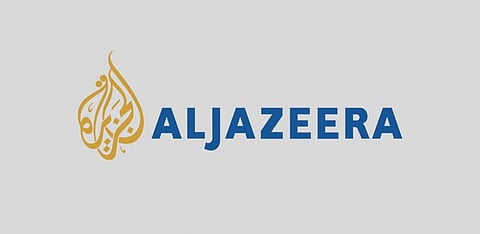

The Bench comprising Justices Ashwani Kumar Mishra and Ashutosh Srivastava, passed the Order to this effect without having the benefit of going through the film.
—
On Wednesday, a division Bench of the Allahabad High Court interdicted Al Jazeera Media Network Private Ltd., a news channel based in Doha (Qatar), from releasing a documentary film titled 'Who lit the Fuse?'.
The Bench comprising Justices Ashwani Kumar Mishra and Ashutosh Srivastava, passed the Order to this effect without having the benefit of going through the film.
It also directed the Union government and other authorities to ensure that the film is not allowed to be telecast or broadcast unless its contents are examined by the authorities duly constituted in law for the purpose, and necessary certification and authorisation is obtained from the competent authority.
The Bench was acting on a petition styled as public interest litigation filed by one Sudhir Kumar, claiming to be a public-spirited person and a social activist, seeking direction to the government authorities to review and certify the film before it is broadcast by the news channel. The petition also asked for an inquiry to be conducted into the credentials of the film.
The petitioner contended before the high court that he had reliably learnt from print and social media reports that the film in question portrays that the Muslim minority in India is living with a sense of fear, and presents a disruptive narrative aimed at creating a sense of public hatred, which is far from reality.
"The petitioner asserts that the film negatively portrays the political functionaries of the Indian State and projects them as acting detrimental to the interest of minorities. The petitioner states that the film purposefully seeks to create a rift between India's largest religious communities through its disruptive narrative and creates a sense of public hatred.
"It is also averred that the film proposes to publicise distorted versions of facts with the intent to create disharmony amongst the citizens of the country who belong to different religions denominations," reads the high court Order, recording the submissions of the petitioner.
The petitioner alleged that if the film was to be released, it would create hatred amongst different religious denominations and thereby destroy the secular fabric of the Indian State.
The Bench observed that the apprehension expressed by the petitioner is that the telecast of the film in question without adhering to the constitutional and statutory safeguards may result in injuring public order and thereby the sovereignty and integrity of India.
It noted that the provisions of the Cinematograph Act 1952, the Cable Television Networks (Regulation) Act, 1995 and the Information Technology Act, 2000 would be contravened in the event assertions made in the writ petition are found correct.
"Undisputedly, no certificate has been issued by the third respondent for unrestricted public exhibition under the Act of 1952. Considering the seriousness of allegations made in the writ, which are likely to have far reaching consequences, the petition does require consideration. We are conscious of the fact that the freedom of speech and expression as also the right of broadcast is a fundamental right but it remains subject to the reasonable restrictions imposed by Article 19(2) of the Constitution of India.
"Considering the evil consequences that are likely to occur on the telecast or broadcast of the film in question, we are of the view that the broadcast or telecast of the film in question be deferred pending consideration of the cause in the present petition. No irreparable injury would otherwise be caused to the fifth respondent if the telecast or broadcast of the film is allowed after required scrutiny of the issues raised in the present petition," the Bench ordered.
Referring to the supplementary affidavit filed annexing various Twitter posts commenting upon the film on the prerelease (preview) of the film in some other countries, the Bench noted that some of the comments brought on record suggest campaigns in several Indian States to demolish the houses and companies of minority at the instance of the majority community.
Interestingly, the media house which has a presence in India through its director/Chief Executive Officer (CEO) was not represented in the high court even as the film was not available for the perusal of the Bench. It thus directed the petitioner to take steps within 48 hours to serve the news channel while staying the release of the same.